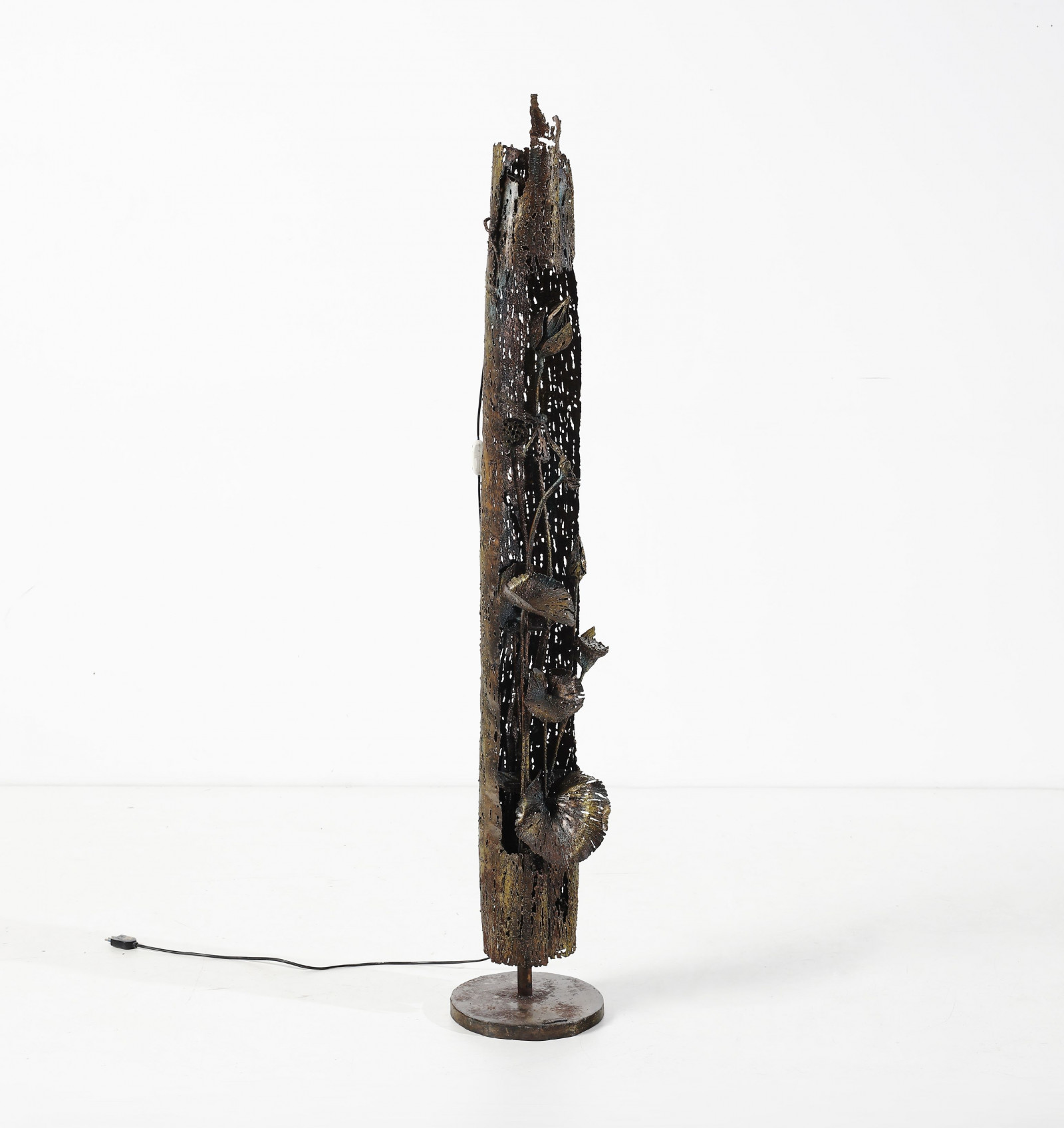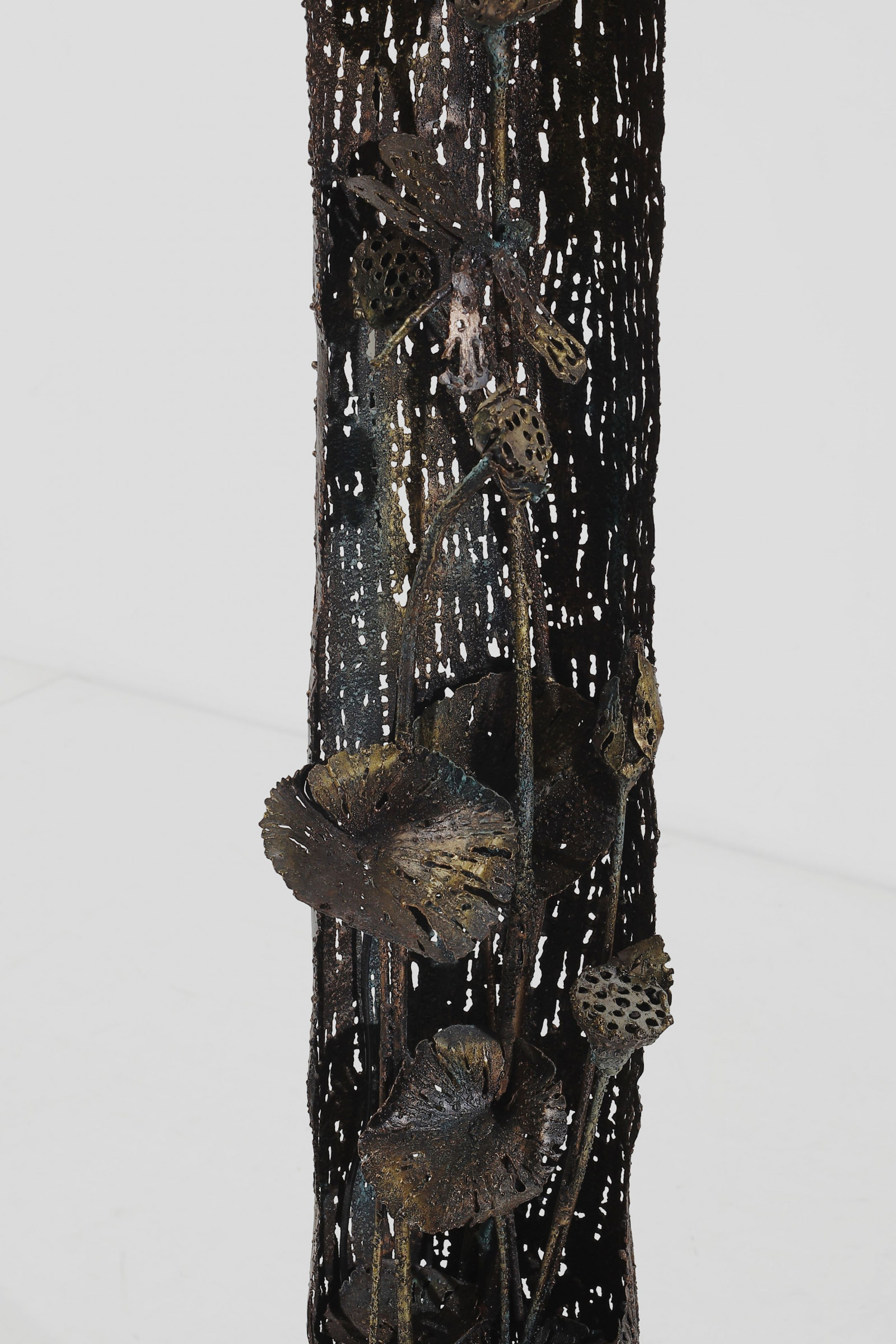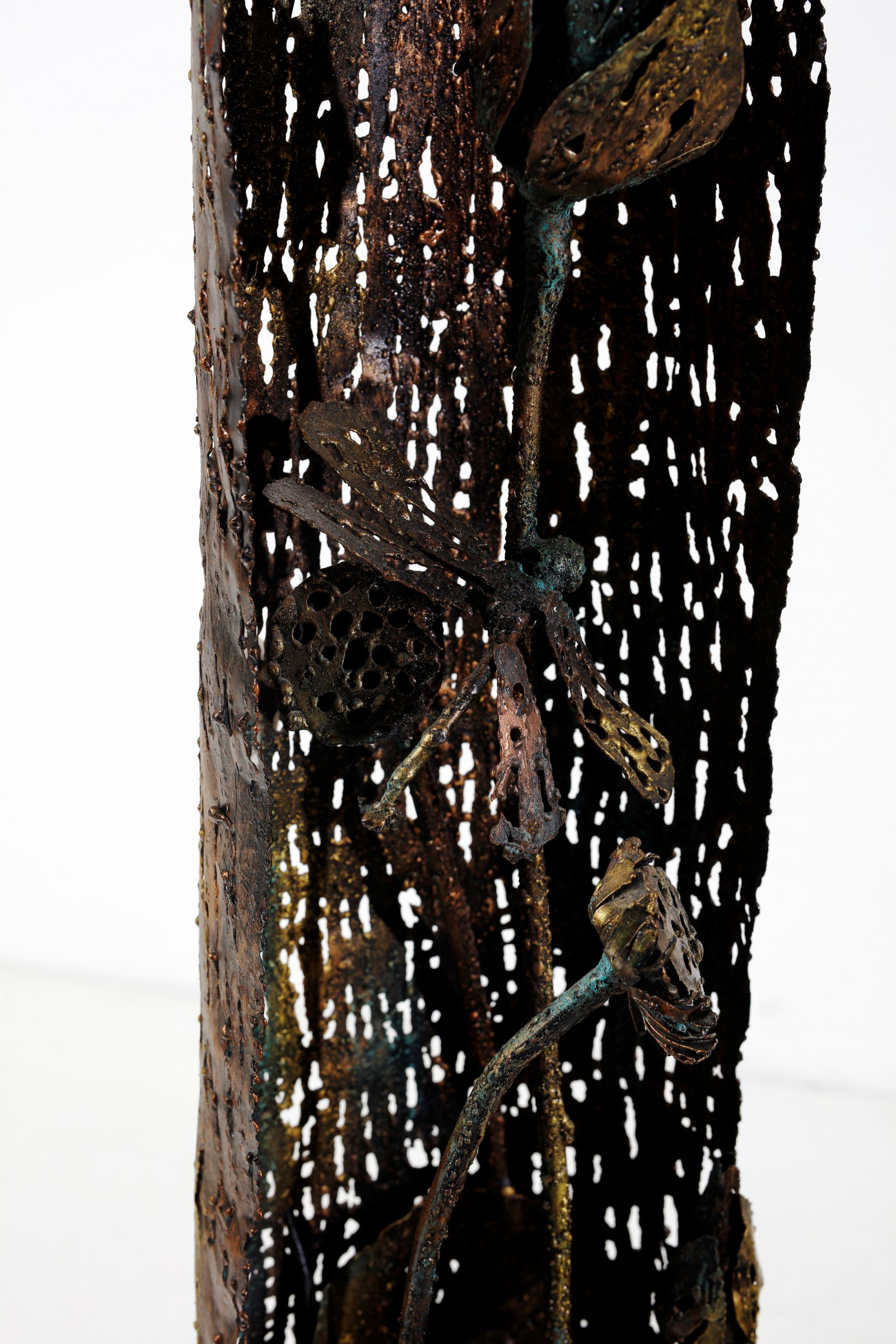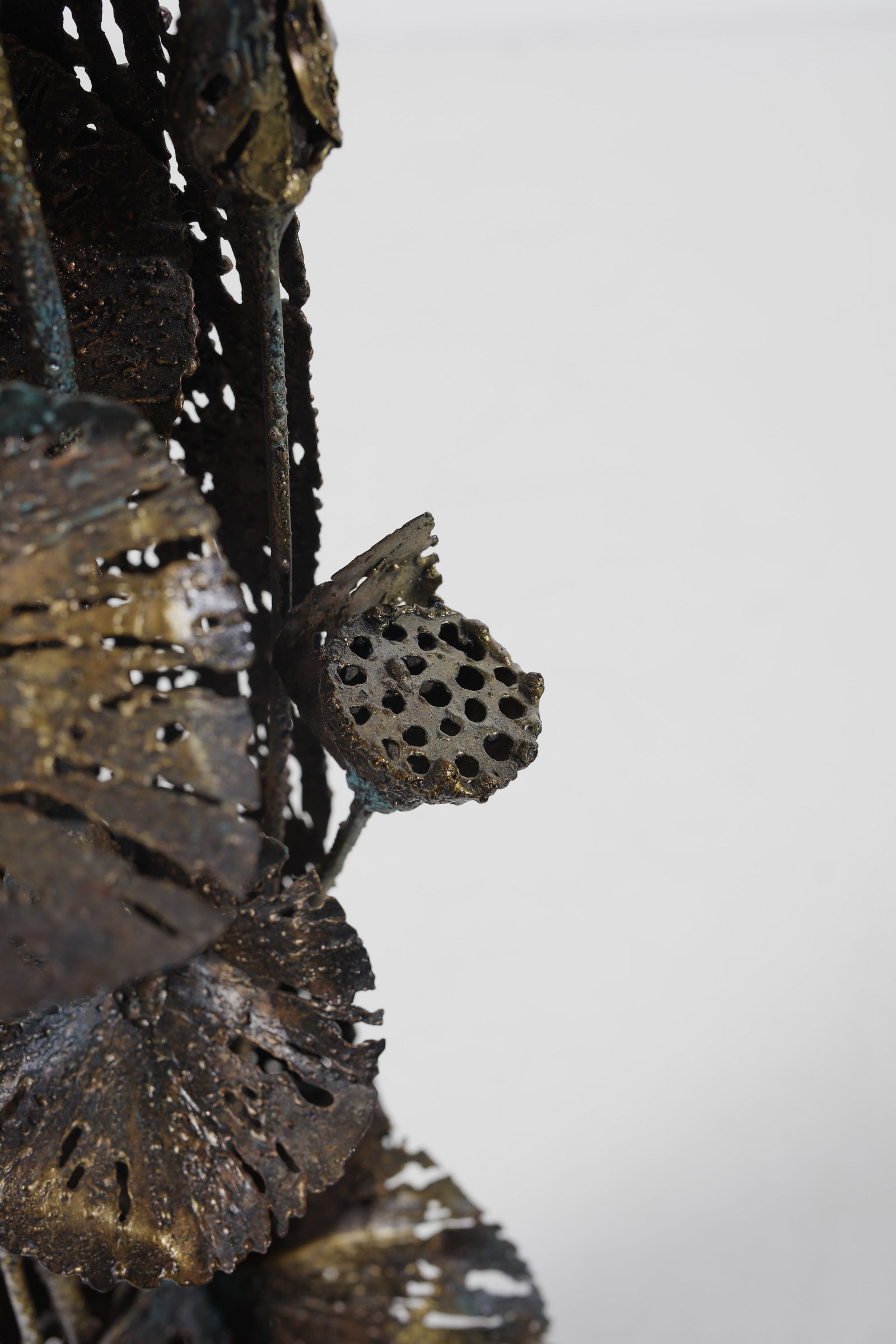1960s Wrought Iron Lighting Sculpture -Floor Lamp by Salvino Marsura
Amazing 1960s lighting sculpture / Floor lamp representing an enchanted garden with dragonfly by Salvino Marsura .
Dimensions : cm 159 H. by cm 28 Diam.
Very Good Conditions- Wear Consistent in Use and Age
Price on demand.
Salvino Marsura is an Italian artist, born in Treviso in 1938, whose career has spanned 60 years from the 1950’s onwards. The body of his work is comprised of small and large-scale sculpture as well as furniture and architectural elements. Today, as in the past, the work is manual, following in the footsteps of the blacksmith: forge, anvil, hammer, force and wits. Beyond his ability in the craft of metal, the main gift of Marsura is that he gives a soul to lifeless material.
“He started with an apprenticeship in the workshop of Toni Benetton after which he jumped straight into adventure. He had to struggle, he had to fight against misunderstanding of every kind, but today the recognition of his work has reached outside the circle of Treviso. Not a prefabricated cliche, Marsura trusts his own instinct, his metamorphic fantasy. Informal or new constructivist, figurative or abstract, geometric or naturalistic, he throws himself where a kind of biological propulsion pushes him. Like Duchamp and Man Ray and their ready-made’s, Giacometti with his thread like creations, Brancusi and Burri, Marsura is always following a connection between form and an idea, between something that is still and something that can come alive. Such sculpture is born out of the avant-garde, his anxiety to transform the daily life. He is fascinated by the machine, like Jean Tinguely, the mechanical structure answers to a mysterious natural call. Not coincidentally he uses left over material, following a boundless fantasy. Then he projects his plastic invention onto an architectural scale, dreaming maybe of strange skyscrapers of the year 7000. He is not happy with the year 2000.
Marsura’s sculpture, like Pevsner, like Gabo, like many constructivists, is always a sketch for something that wanted to become big, that wanted to enter the social realm. In the end it’s a big utopia and the garden of Marsura is the garden of utopia. You need culture and sensibility to enter it, but once in, you feel free. This is exactly what I like of Marsura, his unleashed anxiety for freedom. I see him entering his workshop, between forge and anvil, becoming the Vulcano of our time.




